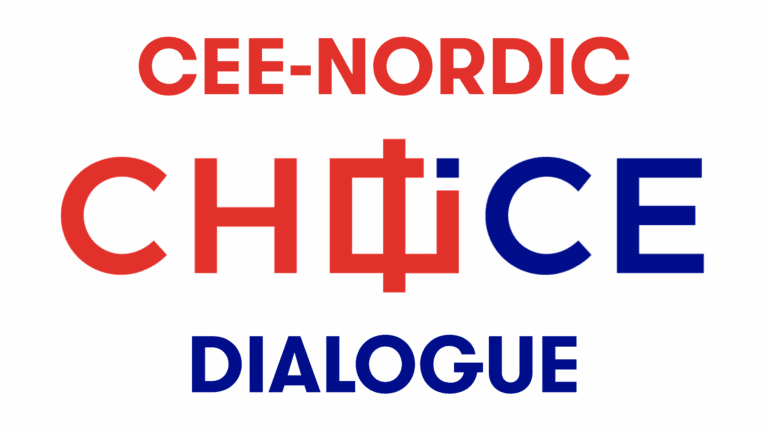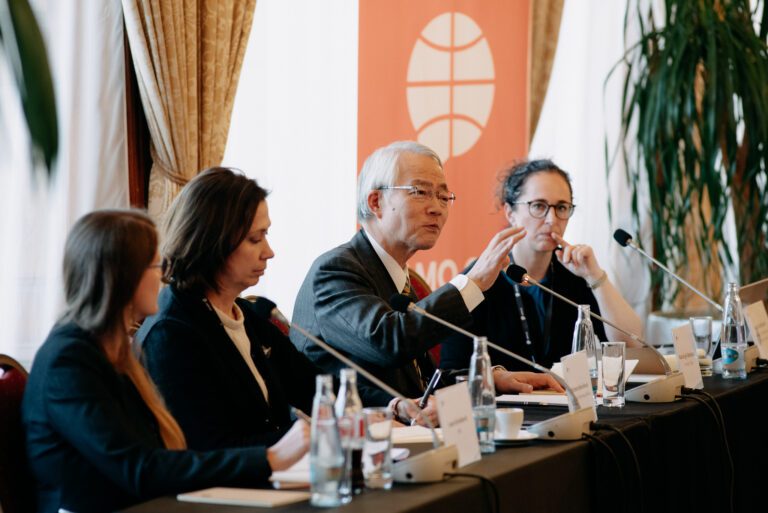CHOICE-Japan Dialogue: Juxtaposed Priorities, Overlapping Lessons

Shortly after the G7 summit and its heightened wariness of both direct and indirect challenges posed by China, China Observers in Central and Eastern Europe (CHOICE) and the Japan Forum on International Relations (JFIR) jointly organized a forum to discuss the myriad of issues China presents to its nearest G7 neighbor in Japan and how these concerns compare and contrast with the apprehensions apparent in CEE nations.
Within this forum, experts from both CEE countries and Japan united to share with one another the many insights that each have gleaned in recent years as China has stepped up influence efforts globally. Crucially, each side was able to share key lessons that policymakers must take heed of to address the growing China challenge.
CEE and EU Epiphany: An End to Naivete
Experts and analysts from CEE nations kicked off the discussion by noting that the EU has quickly come to terms with the reality China presents as a strategic rival rather than a purely economic partner.
Recent investment screening legislation on both national and EU levels as well as restrictions on 5G and Chinese technology are perhaps the best indicators of this broadly more wary stance. While a turn toward a more skeptical tenor was certainly in motion over recent years, it was no doubt accelerated by the COVID-19 crisis.
Additionally, a heightened focus on human rights has soured public perceptions across the EU, but perhaps most pointedly in CEE nations. The newfound primacy of human rights issues was best displayed in Lithuania’s unceremonious exit from the 17+1 (now again 16+1) platform which was coupled with a specific indictment of China’s human rights record.
Still, the experts noted that CEE countries are inextricably linked to the German economy, with Berlin as a main proponent of continued engagement with China. To a large degree, this relationship is what served as the impetus for so many CEE nations seeking to diversify their economic interests and build ties with China. However, as these economic hopes go largely unfulfilled, the reality has been an economic relationship with China still largely tied to major Western European nations.
Outside the EU
Yet, the CEE region goes beyond the borders of the EU and into its surrounding neighborhood. In this periphery, the Balkans have served as fertile ground for Beijing’s influence efforts.
As non-EU members, these nations are not bound by EU standards that have tightened on Chinese investment and are generally far more prone to cooperate with China. Recently, this has led to revelations in terms of corruption, environmental scandals, and other controversial issues. Among the more troubling aspects of China‘s presence, the experts noted the China debt troubles in Montenegro as well as China‘s military and security cooperation with Serbia.
However, experts from the Balkan countries were keen to note that the region is far from homogenous, informing diverging approaches to China. For example, Serbia has developed an extremely close relationship with China via the “Steel Friendship” between Serbian President Vucic and Xi Jinping. Meanwhile, other countries like Albania, with a staunch alliance with the US, have been wary of getting too close to Beijing.
Setting Sights on Security
While economics were clearly front of mind for European researchers, security was paramount for Japan.
Japanese strategic priorities vis-a-vis China are largely derived from its combustible immediate neighborhood, which counts North Korea and Russia alongside China as significant threats and sources of sovereignty disputes. While the US serves as a major security partner and binds like-minded neighbors like South Korea and Taiwan, Japan’s direct ties to them are more ambiguous.
Serving as a further contrast, Japan has been less vocal on human rights and economic issues although it has recently become more outspoken. This reticence has been influenced by the complicated history of the Sino-Japanese relations and also the high vulnerability of Japanese economic interests in China, which is not the case for many CEE countries.
A Need for Deeper Dialogue
Overall, both sides agreed that there must be more discussion on the issues that overlap.
The topic of Chinese presence in the CEE region was lamented by the Japanese experts as broadly neglected in Japan, with the Japanese experts noting a dearth of literature on China-CEE issues like the 16+1 platform in Japanese language. Perspectives on the nature of the Chinese presence in Europe are often incomplete, with outsized focus given to Western EU nations. Japanese experts highlighted the need to address this information asymmetry.
Likewise, EU Indo-Pacific strategy hardly registers as a policy issue at the moment in most of the CEE countries’ discourse. This is despite its potential importance for CEE nations that find themselves members of security arrangements with great powers with significant Pacific interests. As such, a recent pivot towards promoting policies focused on the region highlighted by Japanese experts is likely to be elevated in the future.
Finally, as Slovenia starts its presidency of the EU Council in July 2021 and Czechia eyes 2022, CEE countries are set to take a more visible role in international affairs. While Japan may have paid little attention to CEE nations thus far, both within the EU and on its periphery, it has a key opportunity to highlight its robust presence in CEE, for example as a long-standing investment partner.
Written by
CHOICE
CHOICE is a multinational consortium of experts providing informed analysis on the rising influence of the People’s Republic of China within the countries of Central and Eastern Europe (CEE).


